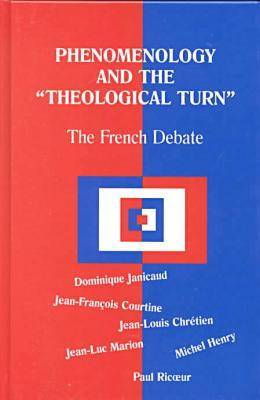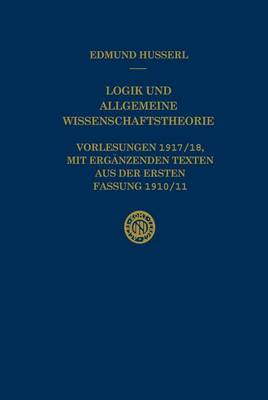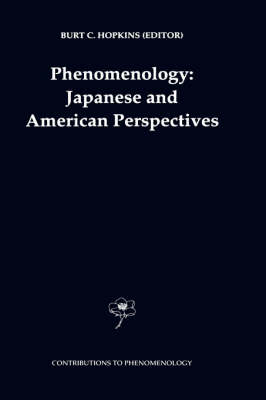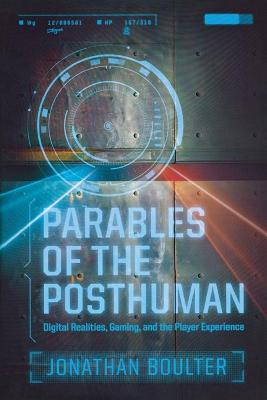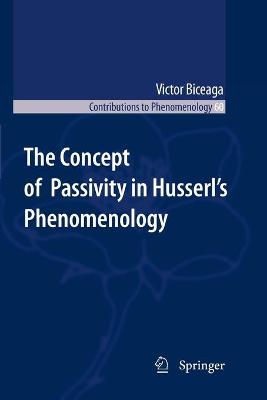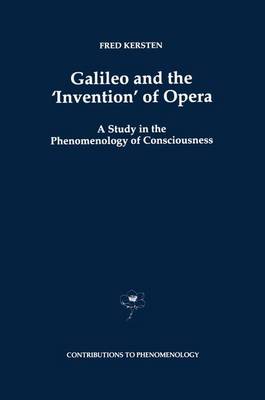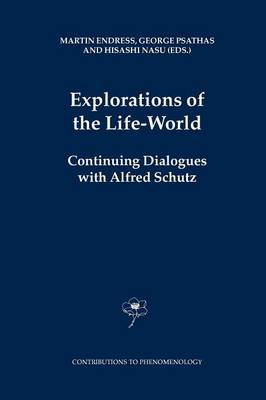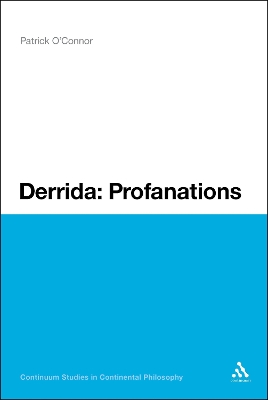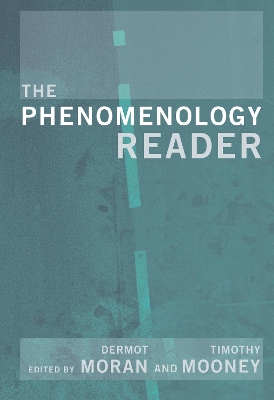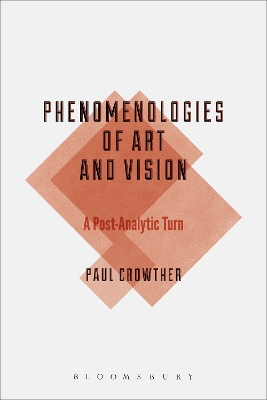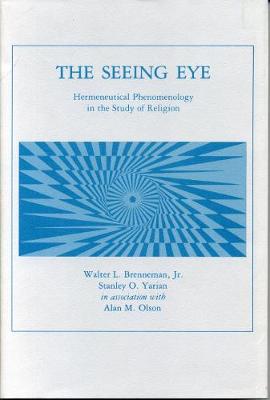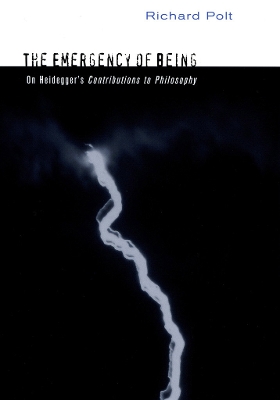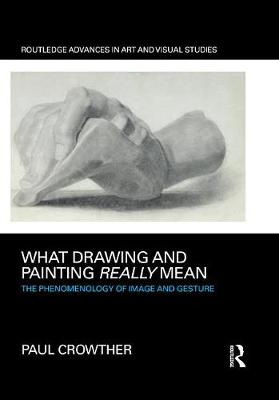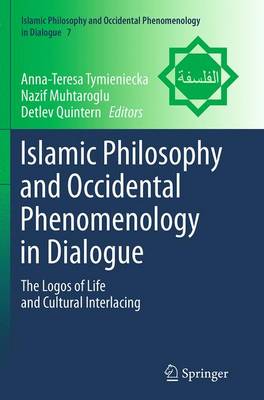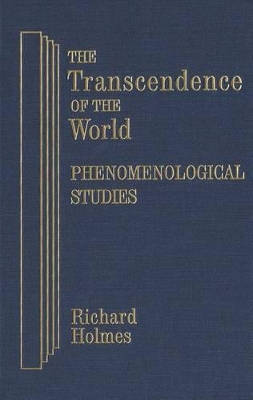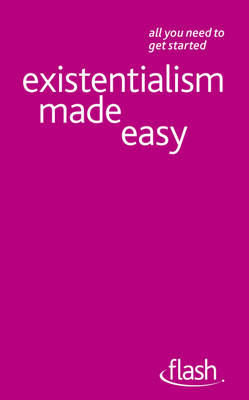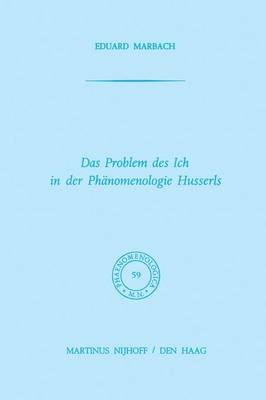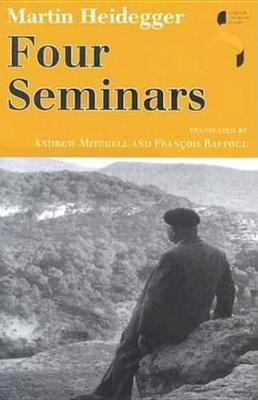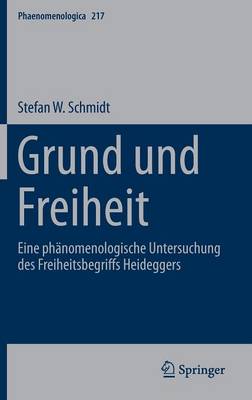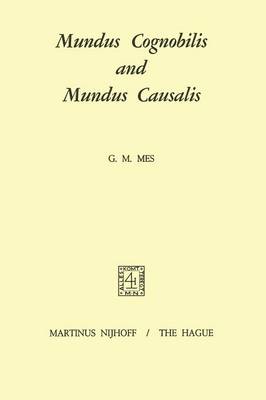Phenomenology and the Theological Turn (Perspectives in Continental Philosophy)
by Dominique Janicaud and Jean Francois Coutine
Phenomenology and the “Theological Turn” brings together the debate over Janicaud’s critique of the “theological turn” represented by the works of Emmanuel Levinas, Paul Ricœur, Jean-Luc Marion, Jean-François Courtine, Jean-Louis Chrétien, and Michel Henry.
Logik Und Allgemeine Wissenschaftstheorie (Husserliana: Edmund Husserl - Gesammelte Werke, #30)
by Edmund Husserl and Ursula Panzer
Veroeffentlicht wird in dem vorliegenden Husserliana-Band die letzte Textfassung einer Vorlesung, die Husserl erstmals im Wintersemester 1910/11 unter dem Titel `Logik als Theorie der Erkenntnis' gehalten hat. Aufbauend auf dem in seinen Vorlesungen `Einleitung in die Logik und Erkenntnistheorie' von 1906/07 (Husserliana XXIV) und `Grundprobleme der Ethik' (Husserliana XXVIII) Erarbeiteten, entfaltet Husserl in der hier veroeffentlichten Vorlesung von 1910/11 die allgemeine Idee der Wissenschaft...
Timaeus and Critias. Oxford World's Classics.
by Research Fellow Andrew Gregory and Freelance Writer and Translator Robin Waterfield
Phenomenology: Japanese and American Perspectives (Contributions to Phenomenology, #36)
Many of the contributions to this volume are based on research originally presented at the historic first meeting in the United States of Japanese and American phenomenologists that took place at Seattle University in the Summer of 1991. In addition, other contributions have been added in order to supplement and complement the themes of the work presented at this meeting. Owing both to the vagaries of fate and the finitude of time, the publication of these essays has taken much longer tha...
In the 20th century, phenomenology promised a method that would get philosophy "back to the things themselves". But phenomenology has always been haunted by the spectre of an anthropocentric antirealism. Tom Sparrow shows how, in the 21st century, speculative realism aims to do what phenomenology could not: provide a philosophical method that disengages the human-centred approach to metaphysics in order to chronicle the complex realm of nonhuman reality. Through a focused reading of the method...
Parables of the Posthuman (Contemporary Approaches to Film and Media)
by Jonathan Boulter
In its intimate joining of self and machine, video gaming works to extend the body into a fluid, dynamic, unstable, and discontinuous entity. While digital gaming and culture has become a popular field of academic study, there has been a lack of sustained philosophical analysis of this direct gaming experience. In Parables of the Posthuman: Digital Realities, Gaming, and the Player Experience, author Jonathan Boulter addresses this gap by analyzing video games and the player experience philosoph...
The Concept of Passivity in Husserl's Phenomenology (Contributions to Phenomenology, #60)
by Victor Biceaga
Building upon Husserl's challenge to oppositions such as those between form and content and between constituting and constituted, The Concept of Passivity in Husserl's Phenomenology construes activity and passivity not as reciprocally exclusive terms but as mutually dependent moments of acts of consciousness. The book outlines the contribution of passivity to the constitution of phenomena as diverse as temporal syntheses, perceptual associations, memory fulfillment and cross-cultural communicati...
Galileo and the 'Invention' of Opera (Contributions to Phenomenology, #29)
by F. Kersten
Intended for scholars in the fields of philosophy, history of science and music, this book examines the legacy of the historical coincidence of the emergence of science and opera in the early modern period. But instead of regarding them as finished products or examining their genesis, or `common ground', or `parallel' ideas, opera and science are explored by a phenomenology of the formulations of consciousness (Gurwitsch) as compossible tasks to be accomplished in common (Schutz) which sh...
Explorations of the Life-World (Contributions to Phenomenology, #53)
This anthology originated from three conferences, which were held at Waseda University, Tokyo, Japan, on March 26-28, 1999, at the Univ- sity of Konstanz, Germany, on May 26-29, 1999 and a session at the SPHS annual meeting at the University of Oregon, USA, on October 5-7, 1999. With one exception the contributions to this volume are revised versions of papers read at these meetings. Each of these conferences took place in order to celebrate the centennial of the birthday of Alfred Schutz, who w...
Derrida: Profanations (Continuum Studies in Continental Philosophy)
by Dr Patrick O'Connor
Derrida: Profanations presents a re-appraisal of Jacques Derrida's deconstruction. If philosophy articulates what it means to be human, then deconstruction, which Patrick O'Connor argues consigns all existence to a mortal, profane and worldly life remains radically philosophical. The assertion demands an analysis of Derrida's radicalisation of the key philosophers who influenced him, as well as a rebuttal of theological accounts of deconstruction. This book closely examines how the phenomenologi...
The Phenomenology Reader
The Phenomenology Reader is the first comprehensive anthology of seminal writings in phenomenology. Carefully selected readings chart phenomenology's most famous thinkers, such as Husserl, Heidegger, Sartre and Derrida, as well as less well known figures such as Stein and Scheler. Ideal for introductory courses in phenomenology and continental philosophy, The Phenomenology Reader provides a comprehensive introduction to one of the most influential movements in twentieth-century philosophy.
Phenomenologies of Art and Vision (Bloomsbury Studies in Philosophy)
by Paul Crowther
Contemporary discussions of the image like to emphasize art's societal functions. Few studies come close to answering why pictures and sculptures fascinate and intrigue regardless of any practical functions they might serve. In this original, thought-provoking study, Paul Crowther reveals the intrinsic significance of pictures and sculptures. To address the question of how painting becomes an art, Crowther uses the analytic philosophy of Richard Wollheim as a starting point. But to sufficient...
Establishing a link between phenomenology and hermeneutics as seen by philosophers (notably Heidegger and Husserl) and as applied by students of religion (notably Eliade and van der Leeuw) is the pioneering aim of this book. No existing book ties together the cross-disciplinary strands in a way that is useful for religious studies. A phenomenological and therefore hermeneutical approach to religion "prides itself on being aware of its own presuppositions and those of others that are brought to...
"The heart of history, for Heidegger, is not a sequence of occurrences but the eruption of significance at critical junctures that bring us into our own by making all being, including our being, into an urgent issue. In emergency, being emerges."—from The Emergency of BeingThe esoteric Contributions to Philosophy, often considered Martin Heidegger's second main work after Being and Time, is crucial to any interpretation of his thought. Here Heidegger proposes that being takes place as "appropria...
In interpreting the fundamental concepts of Husserl's transcendental phenomonology from an analytical perspective, Mohanty attempts to argue that our own consciousness and experiences are responsible for the way we confer meanings on the world. He starts by describing how it is possible to look at the continental philosophers analytically, which in the past has seemed contradictory. He then discusses the relationship between the object, the content and the context that both are interpreted in an...
What Drawing and Painting Really Mean (Routledge Advances in Art and Visual Studies)
by Paul Crowther
There are as many meanings to drawing and painting as there are cultural contexts for them to exist in. But this is not the end of the story. Drawings and paintings are made, and in their making embody unique meanings that transform our perception of space-time and sense of finitude. These meanings have not been addressed by art history or visual studies hitherto, and have only been considered indirectly by philosophers (mainly in the phenomenological tradition). If these intrinsic meanings are...
The contributions, composed in this volume, are inspired not only by the necessity but also by the potentialities of a process which continues and deepens cross-cultural understanding, especially between Islamic and Western philosophy. Following the tradition of an East-Western symphony of thoughts, the authors focus on common horizons and while applying comparative and historical approaches, varieties of unity appear on the ways towards a New Enlightenment. The creative force, orchestrating the...
The Transcendence of the World: Phenomenological Studies
by Sir Richard Holmes
Tomber Malade, Devenir Fou (Problemes & Controverses)
by Philippe Cabestan
The books in this bite-sized new series contain no complicated techniques or tricky materials, making them ideal for the busy, the time-pressured or the merely curious. Existentialism Made Easy is a short, simple and to-the-point guide to existentialism. In just 96 pages, the reader will discover all the key ideas, from altruism to utilitarianism. Ideal for the busy, the time-pressured or the merely curious, Existentialism Made Easy is a quick, no-effort way to break into this fascinating topic....
Das Problem des Ich in der Phanomenologie Husserls (Phaenomenologica, #59)
by E. Marbach
"Allerdings, das ist eine grosse Frage, der ich zu sehr ausgewichen bin, die Evidenz des Ich als ein Identisches, das also doch nicht in dem Bundel bestehen kann." (Husserl, 1907) Bekanntlich verwirft Husserl in den Logischen Untersuchungen die Auffassung, "dass die Beziehung auf das Ich etwas zum we sentlichen Bestande des intentionalen Erlebnisses selbst Gehoeriges sei'',! und bildet um 1907, nach Einfuhrung der phanomenolo gischen Reduktion, "die Beziehung auf das Ich zu unterlassen, oder v...
In Four Seminars, Heidegger reviews the entire trajectory of his thought and offers unique perspectives on fundamental aspects of his work. First published in French in 1976, these seminars were translated into German with Heidegger's approval and reissued in 1986 as part of his Gesamtausgabe, volume 15. Topics considered include the Greek understanding of presence, the ontological difference, the notion of system in German Idealism, the power of naming, the problem of technology, danger, and th...
In der vorliegenden Studie geht der Autor den mannigfaltigen Zusammenhangen von Grundung und Begrundung in der Welt nach, um mit Martin Heidegger zu zeigen, dass all diese Zusammenhange Freiheit voraussetzen, aus Freiheit hervorgehen oder doch zumindest freiheitsbedingt sind. Die Analyse des ontologischen Freiheitsbegriffs Heideggers nimmt so die Gestalt einer phanomenologischen Destruktion von "Grund" an. Der Fokus des Buches liegt auf Heideggers tatsachlichem Gebrauch des Begriffs "Freiheit"....
In recommending a book like this, one is tempted to fall back on cliches such as 'brilliant insights', 'original perspectives', etc. The origina lity of this book is on a different plane. The problem of subject and object has been central to Western philo sophic thinking at least since the time of Descartes. So much so that many students of philosophy see it as the philosophical problem. In his Mundus Cognobilis and Mundus Causalis Mr. Mes offers an ontological-epistemological view, the origin...
